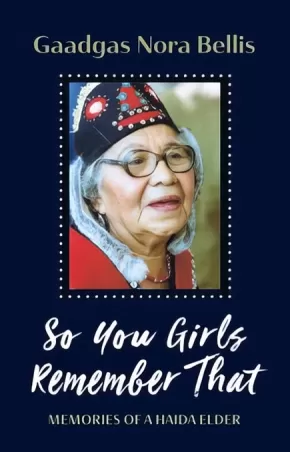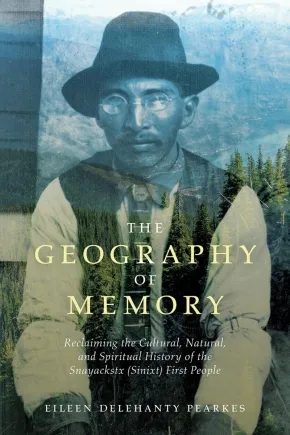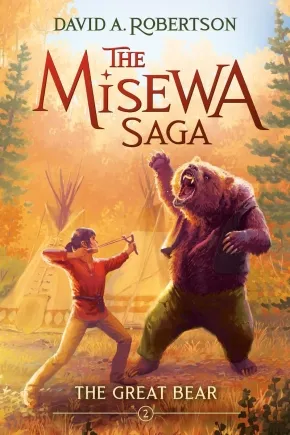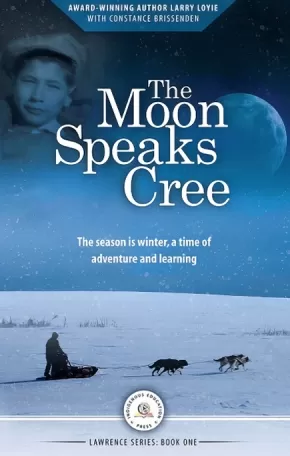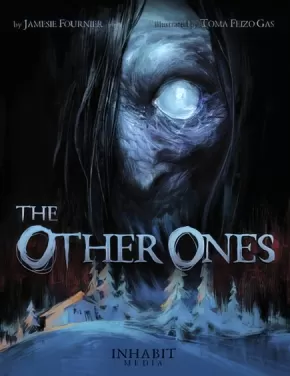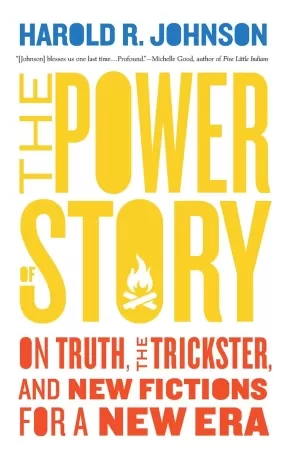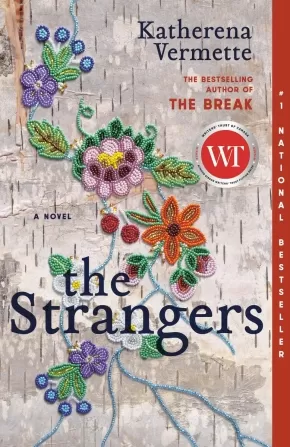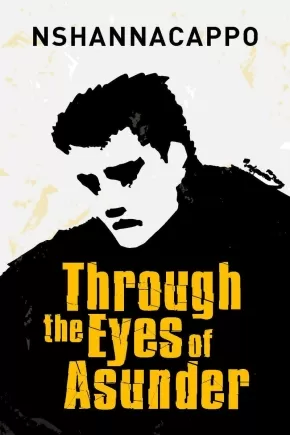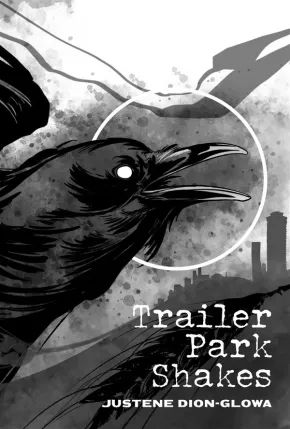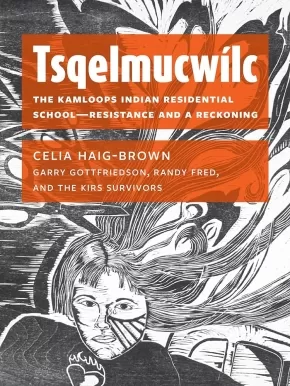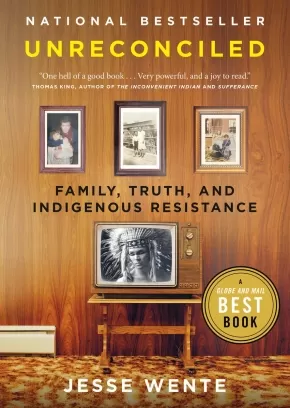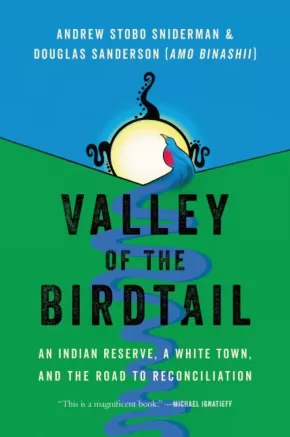Indigenous Peoples in Canada
Synopsis:
Collected wisdoms, reflections and stories from Indigenous Elder Naanii Nora of the Haida Nation.
So You Girls Remember That is an oral history of a Haida Elder, Naanii Nora, who lived from 1902 to 1997. A collaborative effort, this project was initiated and guided by Charlie Bellis and Maureen McNamara and was years in the making. The resulting book, compiled by Jenny Nelson, is a window into Nora’s life and her family—from the young girl singing all day in the canoe, bossing her brothers around or crossing Hecate Strait on her dad’s schooner, to the young woman making her way in the new white settlers’ town up the inlet, with music always a refrain—these are stories of childhood; of people and place, seasons and change; life stages and transitions such as moving and marriage; and Haida songs and meanings.
This book also contains the larger story of Nora’s times, a representation of changing political relationships between Canada and the Haida people and a personal part of the Haida tale.
What ultimately shines through is Nora’s singular and dynamic voice speaking with the wisdom of years. For example, on giving advice she says: “I like to give anybody advice because when you’re young you don’t know nothing on this world. What’s coming; what’s going … You have to remember it’s a steep hill; you’re right on the top. You slide down anytime if you don’t be careful.”
This is a work of great generosity, expressing Nora’s spirit of living—her joy, humour, spirituality and resourcefulness; her love of children, music and social life; her kindness, strong will and creativity; and her spirit that has nurtured a community and endures to this day.
Royalties will be donated to the Carl Hart Legacy Trust through the Haida Gwaii Community Foundation, to support the Rediscovery Camp at T'aalan Stl'ang.
Reviews
"You can tell if someone has ever met Naanii Nora Brown Bellis Yahgulanaas as the mere mention of her name will make them smile." –Michael Nicoll Yahgulanaas, author of Carpe Fin: A Haida Manga
"Reading my Nanny’s stories in So You Girls Remember That, filled me with emotions. It brought me back to Nanny’s strong warm hugs and her cheeky demeanor, memories of her cluttered house and all the time spent with her. As a Haida, and a father, I worry about the rapidly advancing world, where we are now and where we’re heading. Nanny has laid the blueprint for tackling such worries. Her words remind us to always believe in ourselves, and that love of family and community are essential, not only for survival but also for the flourishing of love, laughter and music." –Tyler Hugh Charlie Bellis, played the melodica in grades 6 and 7 at Tahayghen elementary school
Additional Information
240 pages | 5.50" x 8.50" | Paperback
Synopsis:
A provocative, historical investigation into the displacement of the Snayackstx (Sinixt) First People of British Columbia’s West Kootenays.
This compact book records a quest for understanding, to find the story behind the Snayackstx (Sinixt) First Nation. Known in the United States as the Arrow Lakes Indians of the Colville Confederated Tribes, the tribe lived along the upper Columbia River and its tributaries for thousands of years. In a story unique to First Nations in Canada, the Canadian federal government declared them “extinct” in 1956, eliminating with the stroke of a pen this tribe’s ability to legally access 80 per cent of their trans-boundary traditional territory.
Part travelogue, part cultural history, the book details the culture, place names, practices, and landscape features of this lost tribe of British Columbia, through a contemporary lens that presents all readers with an opportunity to participate in reconciliation.
Educator Information
Please note that the author of this work is not Indigenous, but the text content is about the Snayackstx (Sinixt) First People. Shelly Boyd, Sinixt/Arrow Lakes Cultural Facilitator provides a Foreword.
In an Introduction to the work, the author notes: "First and foremost, every word of the story of their culture as presented here has been confirmed and accepted as true by the contemporary Sinixt.... Second, because the story also exists within a colonial context, it refers to written materials, published history and textual memories, information that was often recorded by the hand of non-Indigenous People but nonetheless reflects the knowledge of Indigenous generations.... The result is a tapestry, combining threads of history, ethnography, science and personal essays on the natural word.... Sinixit leaders, local historians, and academic experts review[ed] the text prior to publication.... Some non-Indigenous people criticized me for writing about Indigenous People at all, telling me it was not 'my story to tell.' This was, I realize now, a subtle form of silencing. While racism toward Indigenous People still exists across this culture, a groundswell of recognition has begun. In working alongside the Sinixt all these years, I have come to understand that integrating Indigenous perspectives into contemporary culture is not exclusively the responsibility of Indigenous People. As Shelly Boyd so aptly reminds all of us, we, the settlers, need to listen well and with respect. We need to pick up our pens or cameras or drawing pencils, and dig in to help."
It is up to readers to determine if this resource will be useful for their purposes.
Additional Information
280 pages | 6.00" x 8.90" | Paperback
Synopsis:
In this second book in the Narnia-inspired Indigenous middle-grade fantasy series, Eli and Morgan journey once more to Misewa, travelling back in time.
Back at home after their first adventure in the Barren Grounds, Eli and Morgan each struggle with personal issues: Eli is being bullied at school, and tries to hide it from Morgan, while Morgan has to make an important decision about her birth mother. They turn to the place where they know they can learn the most, and make the journey to Misewa to visit their animal friends. This time they travel back in time and meet a young fisher that might just be their lost friend. But they discover that the village is once again in peril, and they must dig deep within themselves to find the strength to protect their beloved friends. Can they carry this strength back home to face their own challenges?
Awards
- 2022 Silver Birch Award for Fiction
Educator & Series Information
Recommended for ages 10+.
This is the second book in the Misewa Saga.
This book is available in French: Le grand ours.
Additional Information
240 pages | 5.62" x 8.25" | Paperback
Synopsis:
The Moon Speaks Cree. The season is winter, a time of adventure and learning. Written by Award-Winning Cree author Larry Loyie with Constance Brissenden.
In this book, The Moon Speaks Cree, young Lawrence learns the secrets of winter survival from his parents and grandparents. Based on Larry Loyie’s Traditional Cree childhood, the story teaches lessons on: the effect of change on Indigenous People, respect for culture and history, and universal lessons of Cree culture.
Educator & Series Information
Recommended by publisher for grades 4 to 9.
This book is part of The Lawrence Series.
Additional Information
60 Pages | Paperback
Synopsis:
“The Net” features a girl and her mother, known only as the mother and the daughter, who arrive at their secluded cabin on a frozen lake to find their fishing net has been attacked, a massive hole ripped through the middle. After the net has been mended and the night’s catch eaten, the daughter sits awake playing with a bit of leftover netting string. When she was a girl, her grandmother taught her to make string figures—just as her mother had taught her—a game played by Inuit for generations, but a game not to be taken lightly . . . as the daughter plays late into the night, and the mother sleeps, other monstrous forces are soon awakened from beneath the frozen lake.
In “Before Dawn” a young boy runs out onto the tundra to play with his new friend by his side, venturing far beyond his mother’s rule that he not stray past the inuksuk on the horizon. The boy’s friend beckons him farther and farther, and the farther they get from home, the more the friend seems to change . . . and shift . . . until he is no longer human at all. Horrified, the boy listens to the creature’s proposition: return home before dawn, or be lost forever to the other side . . .
Complemented by colour illustrations from illustrator Toma Feizo Gas, The Other Ones is a fresh take on modern horror by an exciting new Inuit voice.
Educator Information
Short stories.
Additional Information
50 pages | 6.75" x 8.75" | Hardcover
Synopsis:
Award-winning Indigenous author Harold R. Johnson discusses the promise and potential of storytelling.
Approached by an ecumenical society representing many faiths, from Judeo-Christians to fellow members of First Nations, Harold R. Johnson agreed to host a group who wanted to hear him speak about the power of storytelling. This book is the outcome of that gathering. In The Power of Story, Johnson explains the role of storytelling in every aspect of human life, from personal identity to history and the social contracts that structure our societies, and illustrates how we can direct its potential to re-create and reform not only our own lives, but the life we share. Companionable, clear-eyed, and, above all, optimistic, Johnson’s message is both a dire warning and a direct invitation to each of us to imagine and create, together, the world we want to live in.
Reviews
"Recently in conversation with a friend I remarked that the whole world is a story. Harold Johnson fills that phrase with profound meaning in The Power of Story as he takes ancient figures and modernizes their storied wit and role in creating the worlds we perceive and the boundaries we need. Harold blessed us one last time with a profound conversation on the role of story in every aspect of our lives."—Michelle Good, author of Five Little Indians
“The Power of Story begins where all great stories begin: around a fire. Harold Johnson gives us a seat at the fire to listen and take into ourselves some spellbinding, bracing, and provocative stories told with a view to healing and transforming. As Harold writes ‘It’s starting to get darker now, and a bright fire will help.’ The Power of Story is that bright fire. And it will help. His final book is a balm for our times.”—Shelagh Rogers
Additional Information
192 pages | 5.00" x 8.00" | Paperback
Synopsis:
From the bestselling author of The Break comes a staggering intergenerational saga that explores how connected we are, even when we’re no longer together—even when we’re forced apart.
Cedar has nearly forgotten what her family looks like. Phoenix has nearly forgotten what freedom feels like. And Elsie has nearly given up hope. Nearly.
After time spent in foster homes, Cedar goes to live with her estranged father. Although she grapples with the pain of being separated from her mother, Elsie, and sister, Phoenix, she’s hoping for a new chapter in her life, only to find herself once again in a strange house surrounded by strangers. From a youth detention centre, Phoenix gives birth to a baby she’ll never get to raise and tries to forgive herself for all the harm she’s caused (while wondering if she even should). Elsie, struggling with addiction and determined to turn her life around, is buoyed by the idea of being reunited with her daughters and strives to be someone they can depend on, unlike her own distant mother. These are the Strangers, each haunted in her own way. Between flickering moments of warmth and support, the women diverge and reconnect, fighting to survive in a fractured system that pretends to offer success but expects them to fail. Facing the distinct blade of racism from those they trusted most, they urge one another to move through the darkness, all the while wondering if they’ll ever emerge safely on the other side.
A breathtaking companion to her bestselling debut The Break, Vermette’s The Strangers brings readers into the dynamic world of the Stranger family, the strength of their bond, the shared pain in their past, and the light that beckons from the horizon. This is a searing exploration of race, class, inherited trauma, and matrilineal bonds that—despite everything—refuse to be broken.
Reviews
“Katherena Vermette’s The Strangers is a deeply moving story of how colonial institutions continue to bear down on and disrupt the lives of Indigenous women and girls. It is a powerful collective portrait of struggle and resistance, of what it’s like to be in an Indigenous body in twenty-first century Canada. In the end, it adds up to an engrossingly written ode to another kind of care, one against the grain of suffering. A brilliant follow-up!”—Billy-Ray Belcourt, bestselling author of A History of My Brief Body
“The Strangers is a unique and essential triumph of a novel. It is revelatory in its artistry—in its constellating of family against violent separation, in its austere poetics of voice and consciousness. Katherena Vermette has proven once again that she is among the most gifted and relevant writers of our time: someone with everything to teach us about the telling of necessary stories, about grieving the fallen, honouring survival, and revealing the fiercest beauty.” —David Chariandy, award-winning author of Brother and I’ve Been Meaning to Tell You
Additional Information
352 pages | 5.10" x 7.90" | Paperback
Synopsis:
A poignant and evocative novel about the bonds of family and the gifts offered by the land.
When a troubled father and his estranged teenage daughter head out onto the land in search of the family trapline, they find their way back to themselves, and to each other.
Deep in the night, Matthew paces the house, unable to rest. Though his sixteen-year-old daughter, Holly, lies sleeping on the other side of the bedroom door, she is light years away from him. How can he bridge the gap between them when he can’t shake the emptiness he feels inside? Holly knows her father is drifting further from her; what she doesn’t understand is why. Could it be her fault that he seems intent on throwing everything away, including their relationship?
Following a devastating tragedy, Matthew and Holly head out onto the land in search of a long-lost cabin on the family trapline, miles from the Cree community they once called home. But each of them is searching for something more than a place. Matthew hopes to reconnect with the father he has just lost; Holly goes with him because she knows the father she is afraid of losing won’t be able to walk away.
When things go wrong during the journey, they find they have only each other to turn to for support. What happens to father and daughter on the land will test them, and eventually heal them, in ways they never thought possible.
Reviews
“Robertson shines in A Theory of Crows, a multilayered story of love, loss, healing and ultimately belonging. A family on the brink of shattering finds its way through ancient teachings of infinite connection and the roots of truth in the earth’s living memory.” — Michelle Good, author of Five Little Indians, winner of CBC Canada Reads
“In weaving together themes of identity, belonging, grief and land, The Theory of Crows is a novel that approaches rapture.” — Yann Martel, author of The High Mountains of Portugal and Life of Pi
“A brilliantly empathetic story that is both gentle and fierce.” — Thea Lim, author of An Ocean of Minutes
Additional Information
320 pages | 6.00" x 9.00" | Paperback
Synopsis:
After a hunting trip one fall, a family in the far reaches of so-called Canada’s north return to nothing but an empty space where their home once stood. Finding themselves suddenly homeless, they have no choice but to assimilate into settler-colonial society in a mining town that has encroached on their freedom.
An intergenerational coming-of-age novel, This House Is Not a Home follows Kǫ̀, a Dene man who grew up entirely on the land before being taken to residential school. When he finally returns home, he struggles to connect with his family: his younger brother whom he has never met, his mother because he has lost his language, and an absent father whose disappearance he is too afraid to question.
The third book from acclaimed Dene, Cree and Metis writer Katłįà, This House Is Not a Home is a fictional story based on true events. Visceral and embodied, heartbreaking and spirited, this book presents a clear trajectory of how settlers dispossessed Indigenous Peoples of their land — and how Indigenous communities, with dignity and resilience, continue to live and honour their culture, values, inherent knowledge systems, and Indigenous rights towards re-establishing sovereignty. Fierce and unflinching, this story is a call for land back.
Reviews
"Absolutely exquisite. Told with such love and gentle ferocity, I’m convinced This House Is Not A Home will never leave those who read it. I am in awe of what I’ve witnessed here. Mahsi cho, Katlia. Bravo! " — Richard Van Camp author of The Lesser Blessed and Moccasin Square Gardens
Additional Information
192 pages | 5.50" x 8.50" | Paperback
Synopsis:
From epic ventures into mythic and fantastical tales to the everyday trials of getting the laundry done, NShannacappo’s debut poetry collection follows many journeys through darkness to hope, healing and heroism. Pure and hauntingly beautiful turns of phrase sound out in the voices of angels, monsters and demons, mythic characters, and the sometimes wry, sometimes grieving voice of a man once broken in heart, spirit, and mind. Through the Eyes of Asunder begins and ends with hope, and takes the reader through sorrow and sadness to bright moments of happiness and love.
Reviews
“Neal Shannacappo is a spiritual thinker. The poetry and life’s perspectives he shares in this collation remind us of the unconditional love and support one can access through the Creator-given learning ways we as human beings are blessed to be born with. Read his words! Feed them to your heart, digest them spiritually and you will benefit from the medicine intended in every word and stanza.”—Albert Dumont, 2021–2022 Poet Laureate for Ottawa and author of Sitting by the Rapids.
“Reading this book, it felt many times like I had stumbled upon a shoebox filled with letters not sent and journals put away for safekeeping. You feel like you shouldn’t pry, but you just can’t help yourself. It was a wonderful read.”—John Brady McDonald, author of KITOTAM
Additional Information
143 pages | 6.00" x 9.00" | 6 illustrations | Paperback
Synopsis:
The poems in Trailer Park Shakes are direct and vernacular, rooted in community--a working-class Métis voice rarely heard from.
These poems, while dreamlike and playful, bear unflinching witness to the workings of injustice--how violence is channeled through institutions and refracted intimately between people, becoming intertwined with the full range of human experience, including care and love. Trailer Park Shakes is a book that seems to want to hold everything--an entire cross-section of lived experience--written by a poet whose courage, attention, and capacity to trace contradiction inspire trust in her words' embrace. Dion-Glowa's poems are quietly philosophical, with a heartfelt, self-possessed politic.
Reviews
"Dion-Glowa's voice crackles with frank, startling insight." — Sachiko Murakami, author of Render
"As I read this work, I was taken back, time and again, to those days when I was a young street poet who had so much to say at a time where it felt like no one was listening. There are many times when sentiment needs to be expressed in the most bold and unapologetic way it can, and the brashness and frank delivery found in this work is the hallmark of a collection that should and will rattle your cage and shine a light where it is needed. These are not exploitative poems, nor are they the Victim Impact Statement of a wounded spirit. This collection is the chronicle of an eyewitness to reality, without compromise." — John Brady McDonald, Nehiyawak-Metis poet and artist, author of Kitotam
Additional Information
96 pages | 5.75" x 8.50" | Paperback
Synopsis:
In this final installation of the Overhead Series, Lucy Hemphill once again transports the reader with intimate revelations on identity by exploring both her personal and ancestral relationship to the forest and the quiet sentinels that root together everything. Hemphill’s prose is extraordinary in its combination of self-awareness yet unselfconscious honesty and skillful restraint, creating a sense of connection under the tangle of foliage and limb that ever-reach skyward. Masterfully illustrated by artist Michael Joyal, his evocative dendrological drawings contribute to the overall sensory and transcendent experience.
Reviews
"Lucy Hemphill has done a marvellous thing. Her book is a passkey that opens a door into the forest of her childhood. Her voice is gentle but direct, the author tells us the story of trees, their gift and our loss if we are not careful. Enhanced with Michael Joyal’s rich illustrations, Hemphill uses her Indigenous language to teach us that trees are our ancestors, living spirits, and as such we are to honour them." – Mary Barnes
Educator & Series Information
This book is part of the Overhead Series.
Additional Information
96 pages | 8.50" x 5.50" | 20 illustrations | Fiction
Synopsis:
In May 2021, the world was shocked by news of the detection of 215 unmarked graves on the grounds of the former Kamloops Indian Residential School (KIRS) in British Columbia, Canada. Ground-penetrating radar confirmed the deaths of students as young as three in the infamous residential school system, which systematically removed children from their families and brought them to the schools. At these Christian-run, government-supported institutions, they were subjected to physical, mental, and sexual abuse while their Indigenous languages and traditions were stifled and denounced. The egregious abuses suffered in residential schools across the continent caused - as the 2021 discoveries confirmed - death for too many and a multigenerational legacy of trauma for those who survived.
"Tsquelmucwilc" (pronounced cha-CAL-mux-weel) is a Secwepemc phrase loosely translated as "We return to being human again." Tsqelmucwilc is the story of those who survived the Kamloops Indian Residential School, based on the 1988 book Resistance and Renewal, a groundbreaking history of the school - and the first book on residential schools ever published in Canada. Tsqelmucwilc includes the original text as well as new material by the original book's author, Celia Haig-Brown; essays by Secwepemc poet and KIRS survivor Garry Gottfriedson and Nuu-chah-nulth elder and residential school survivor Randy Fred; and first-hand reminiscences by other survivors of KIRS, as well as their children, on their experience and the impact of their trauma throughout their lives.
Read both within and outside the context of the grim 2021 discoveries, Tsqelmucwilc is a tragic story in the history of Indigenous peoples of the indignities suffered at the hands of their colonizers, but it is equally a remarkable tale of Indigenous survival, resilience, and courage.
Additional Information
240 pages | 6.00" x 8.00" | B&W photos throughout | Paperback
Synopsis:
A prominent Indigenous voice uncovers the lies and myths that affect relations between white and Indigenous peoples and the power of narrative to emphasize truth over comfort.
Part memoir and part manifesto, Unreconciled is a stirring call to arms to put truth over the flawed concept of reconciliation and to build a new, respectful relationship between the nation of Canada and Indigenous peoples.
Jesse Wente remembers the exact moment he realized that he was a certain kind of Indian--a stereotypical cartoon Indian. He was playing softball as a child when the opposing team began to war-whoop when he was at bat. It was just one of many incidents that formed Wente's understanding of what it means to be a modern Indigenous person in a society still overwhelmingly colonial in its attitudes and institutions.
As the child of an American father and an Anishinaabe mother, Wente grew up in Toronto with frequent visits to the reserve where his maternal relations lived. By exploring his family's history, including his grandmother's experience in residential school, and citing his own frequent incidents of racial profiling by police who'd stop him on the streets, Wente unpacks the discrepancies between his personal identity and how non-Indigenous people view him.
Wente analyzes and gives voice to the differences between Hollywood portrayals of Indigenous peoples and lived culture. Through the lens of art, pop culture, and personal stories, and with disarming humour, he links his love of baseball and movies to such issues as cultural appropriation, Indigenous representation and identity, and Indigenous narrative sovereignty. Indeed, he argues that storytelling in all its forms is one of Indigenous peoples' best weapons in the fight to reclaim their rightful place.
Wente explores and exposes the lies that Canada tells itself, unravels "the two founding nations" myth, and insists that the notion of "reconciliation" is not a realistic path forward. Peace between First Nations and the state of Canada can't be recovered through reconciliation--because no such relationship ever existed.
Reviews
"Unreconciled is one hell of a good book. Jesse Wente’s narrative moves effortlessly from the personal to the historical to the contemporary. Very powerful, and a joy to read."—Thomas King, author of The Inconvenient Indian and Sufferance
“With Unreconciled, Jesse Wente proves himself to be one of the most influential Anishinaabe thinkers of our time. By telling his own story, Jesse provides Canada with an essential roadmap of how to move forward through the myth of reconciliation towards the possibility of a just country. There is much work to be done but reading Jesse’s words, soaking them in and letting them settle in your mind, will set us all on the right path.”—Tanya Talaga, bestselling author of Seven Fallen Feathers
“Mahsi cho, Jesse Wente, for illuminating the biggest issue facing Canada’s relationship with Indigenous people: Canada fears Indigenous people because Canada is terrified of our power. Each language class, culture camp, graduation ceremony, each Supreme Court Ruling, each Treaty (that wasn't forged), each feast and naming ceremony… is part of the incredible Reclaiming happening right now. Please read this book. It's an infuriating read but a necessary one.”—Richard Van Camp, author of The Lesser Blessed and Moccasin Square Gardens
"With Unreconciled, Jesse Wente proves he's a storyteller through and through—one who is unafraid of telling hard but necessary truths, yes, but also one who knows that vulnerability is the quickest way to the heart. Wente shares so generously with his readers in this book, braiding together his own past with the problems of the present, ultimately offering us a way forward, together."—Alicia Elliott, author of A Mind Spread Out on the Ground
Additional Information
208 pages | 5.10" x 7.98" | Paperback
Synopsis:
A heart-rending true story about racism and reconciliation.
Divided by a beautiful valley and 150 years of racism, the town of Rossburn and the Waywayseecappo Indian reserve have been neighbours nearly as long as Canada has been a country. Their story reflects much of what has gone wrong in relations between Indigenous Peoples and non-Indigenous Canadians. It also offers, in the end, an uncommon measure of hope.
Valley of the Birdtail is about how two communities became separate and unequal—and what it means for the rest of us. In Rossburn, once settled by Ukrainian immigrants who fled poverty and persecution, family income is near the national average and more than a third of adults have graduated from university. In Waywayseecappo, the average family lives below the national poverty line and less than a third of adults have graduated from high school, with many haunted by their time in residential schools.
This book follows multiple generations of two families, one white and one Indigenous, and weaves their lives into the larger story of Canada. It is a story of villains and heroes, irony and idealism, racism and reconciliation. Valley of the Birdtail has the ambition to change the way we think about our past and show a path to a better future.
Reviews
"Meticulously researched and written with compassion, Valley of the Birdtail draws two parallel lines hopelessly distant, and then shows us a pathway through which they can come together. It’s a work of trauma, of broken relationships, of how we perceive one another, but ultimately, it’s a story of possibility and healing." — David A. Robertson, author of Black Water: Family, Legacy, and Blood Memory
"This is a magnificent book. It’s a new history of Canada, as lived in two communities—Rossburn and Waywayseecappo—who shared the same valley but never lived the same reality. I am haunted by what I learned and touched by the hope that these communities can teach us all how to live together in peace and justice. A truly extraordinary achievement: peeling back the layers of the history, searching through the records, but never once losing the characters, the detail, the grit of lives lived. I'm just so impressed." — Michael Ignatieff, author of On Consolation: Finding Solace in Dark Times
Additional Information
384 pages | 6.00" x 9.00" | Hardcover

